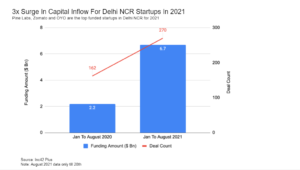When you start an ecommerce business, you also need to grow it. But scaling up your business is different because it requires an incremental and strategic approach.
It’s about much more than simply bringing in additional resources to keep pace with sales. At the same time, you need to keep one eye on your accounting, ensuring that financial management is in place to support your ambitions.
Online sales in the UK grew by 43% in 2020. Some of this is due to the specific conditions of the pandemic, but eCommerce remains a massive market, with significant opportunities for online retailers.
Should you scale up to take advantage of these opportunities?
Is My Ecommerce Business Scalable?
This is the first question you must ask yourself. Not all ecommerce businesses are scalable, and not all business owners will need to scale up to achieve their goals.
For example, if your current online enterprise operates at a level that gives you the desired income along with an optimum work-life balance, you may feel no need to grow it systematically and exponentially.
But if your objectives, whether these are lifestyle or business-focused, require a scaled-up version of your business, then it’s time to think seriously about what this will involve.
There’s no ‘one size fits all’ to scaling up a business. Each business will sit somewhere on the scalable spectrum, but all businesses will have certain aspects that scaling up can address.
Vision and Leadership
If you’re choosing to scale up your business, you need to get others to buy into your vision for your ecommerce business. Even if you don’t employ lots of staff, you’ll still need to convey your commitment to stakeholders, investors and other interested parties.
There’s also a customer-facing side to scaling up. This is about translating your leadership vision into something that resonates with customers and makes them want to buy from you.
You’ll need to separate working on your business from working in it. Free yourself from the day-to-day admin to focus your thoughts strategically on scaling up. Consider your mission and values, and how you align these with the culture of your business and the identity of your brand.
What needs to change, and what needs to stay at the heart of your enterprise even as it grows?
Processes and Systems
This is the practical stuff, the machinery that goes into running the engine room of your ecommerce enterprise.
How well-equipped are you to scale up? Is your software sufficiently adaptable? What platform are you using to sell from, and how scalable is it in meeting your objectives?
Consider which aspects of your business you’ve automated, and which might benefit from further automation. Look at things like lead generation and marketing as well as cloud accountancy software that integrates with your platform.
If you operate with a small number of employees, think about how bringing in automation will allow them to focus on scaling up and support their roles.
Automation isn’t necessarily about replacing people, but rather augmenting their individual skill-sets.
Managing Finances
The systems and processes that support scaling-up aren’t just those directly concerned with marketing and selling online.
You need to make sure that your accounting processes and systems are up to the job of helping you manage your money.
A scaled-up business will have more outgoings, more investments and more liabilities. At the same time, you should be generating more revenue.
Monitoring your cash flow, your profit and loss and your balance sheet are all central to supporting your scaling-up strategies. If you haven’t invested in cloud-based accounting software and support, now’s the time to do so.
The right accounting system will grow alongside your enterprise, every step of your journey.
Bringing in People
Many enterprises begin with one person or partnership and build from there. But scalability requires a leap forward in how you perceive your business.
You may need a broader perspective to help you realise your vision, including the expertise that you don’t possess personally.
This means bringing in new people to help you scale up. This might involve outsourcing, or it might require direct recruitment. Either way, it represents a shift in responsibility and a willingness to delegate.
And again, you’ll need the necessary financial administration to support this, such as payroll management.
Focus on Objectives in Scaling up your Business
We said earlier that scaling up was a systematic process. This requires careful business planning, setting goals, milestones and objectives.
You’ll need to assess new opportunities and ideas carefully, and see how they fit in with your overall strategy for growth.
And you’ll need to build flexibility into your planning. Some things will be outside your control, which will require a degree of flexibility and adaptation.
Scaling-up is about building momentum for growth, and understanding what you need to maintain this, and what to avoid to slow the momentum down.
Be prepared to seek expert advice, and to recognise the value of specialist support in helping you work towards, and attain, your objectives.









